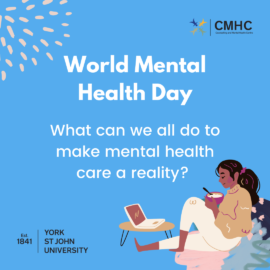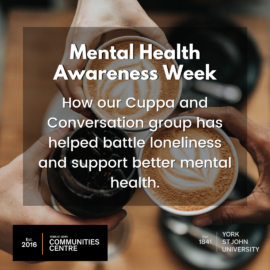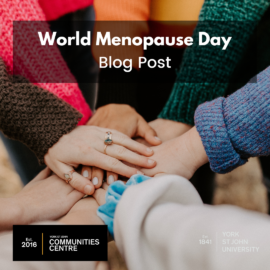Although trauma has many definitions, it has been previously defined by the National health service (NHS) as “a response to a discreet or prolonged circumstance which at some point is perceived by the person to be an uncontrollable serious threat to physical or psychological integrity and which overwhelms emotional resources or capacity to function in daily life.” (NHS, n.d.)
In short, trauma refers to an event (or events) which is extremely stressful and completely overwhelms a person’s ability to cope or function. In this sense the concept of trauma is actually quite subjective, as one person may be completely overwhelmed by an event whereas another person may not be. This can be demonstrated in evidence which suggests that around 60-80% of people will experience a traumatic event in their life time, yet only around 8-11% of these people will develop post-traumatic stress disorder (PTSD; Cusack et al., 2004). Furthermore, some individuals may experience symptoms of trauma after the ending of a relationship (Boals and Schuettler, 2009).
So why might a person develop PTSD or significant trauma symptoms as a result of a stressful event? There is some research which suggests that the way a person views or experiences the event plays a key role in this interaction. For example, an individual is more likely to develop PTSD if the event significantly challenges the beliefs that the person held about themselves, others and the world around them, if the event becomes central to the person’s core identity, or the person experiences the event as being a turning point in their life. However, people are more likely to develop PTSD as a result of repeated or long-term trauma (Boals and Schuettler, 2009).
The impacts that trauma can have on a person are countless. Not only does it affect our physical and mental wellbeing, it also affects the way that we relate to ourselves and the people around us. For example, trauma can impact our mental health by leading to anxiety, depression, nightmares, flashbacks, dissociation (ie, feelings of being disconnected from yourself and the world around you), or unusual experiences such as hearing voices; it can impact our relationship with ourselves and others by causing guilt or shame, lack of trust, anger, self-hatred and self-destructive behaviours, loneliness, or difficulties in maintaining relationships; and it can also affect our physical health, such as developing disordered eating, headaches, pain, or difficulties sleeping (NHS, n.d.)
A lot of these trauma responses can feel alienating, or lead to a person thinking they are broken or crazy – the truth of the matter is that you are having a normal response to an abnormal or stressful set of circumstances. It is also true that people can recover from trauma.
Accessing help after a traumatic event
For some people the impacts of trauma will heal naturally over time, and therefore it is important that professionals do not disrupt this healing process by providing psychological treatment too early. As a result you may find that some services will direct you to refer back to them when a certain period of time has passed.
The NHS advises to contact your GP if you are still struggling with the affects of a traumatic event four weeks later, however, it is never too late to access help. Your GP is then able to assess and/or monitor your symptoms to understand whether they are getting better or worse. If your symptoms are severe or have lasted for more than four weeks you are likely to then be referred for psychological treatment and/or prescribed medication.
You can read more about symptoms of PTSD and accessing support here, and you can refer yourself for psychological treatment here.
You can also read more about trauma and finding a private therapist to work with you here, or find peer support from one of the services listed below:
- Combat Stress – a military charity specialising in helping ex-servicemen and women
- Rape Crisis – a UK charity providing a range of services for women and girls who have experienced abuse, domestic violence and sexual assault
- Victim Support – providing support and information to victims or witnesses of crime
- CRUSE – a UK charity providing support and information for people who have experienced bereavement
As always the YSJ CMHC is able to offer affordable and accessible support, which you can find more about here. Although the centre is currently unable to offer trauma focused therapies (some counsellors are currently being trained in these areas), our counsellors are able to work with individuals who have experienced trauma and will be able to aid with referrals to more appropriate services where necessary.
~
Author: Shannon
~
References
Cusack, K. J., Frueh, B. C., & Brady, K. T. (2004). Trauma history screening in a community mental health center. Psychiatric Services, 55(2), 157-162.
Boals, A., & Schuettler, D. (2009). PTSD symptoms in response to traumatic and non-traumatic events: The role of respondent perception and A2 criterion. Journal of anxiety disorders, 23(4), 458-462.
National Health Service (N.D.). Trauma and Recovery (Online course). Retrieved from: https://lms.recoverycollegeonline.co.uk/login/index.php



